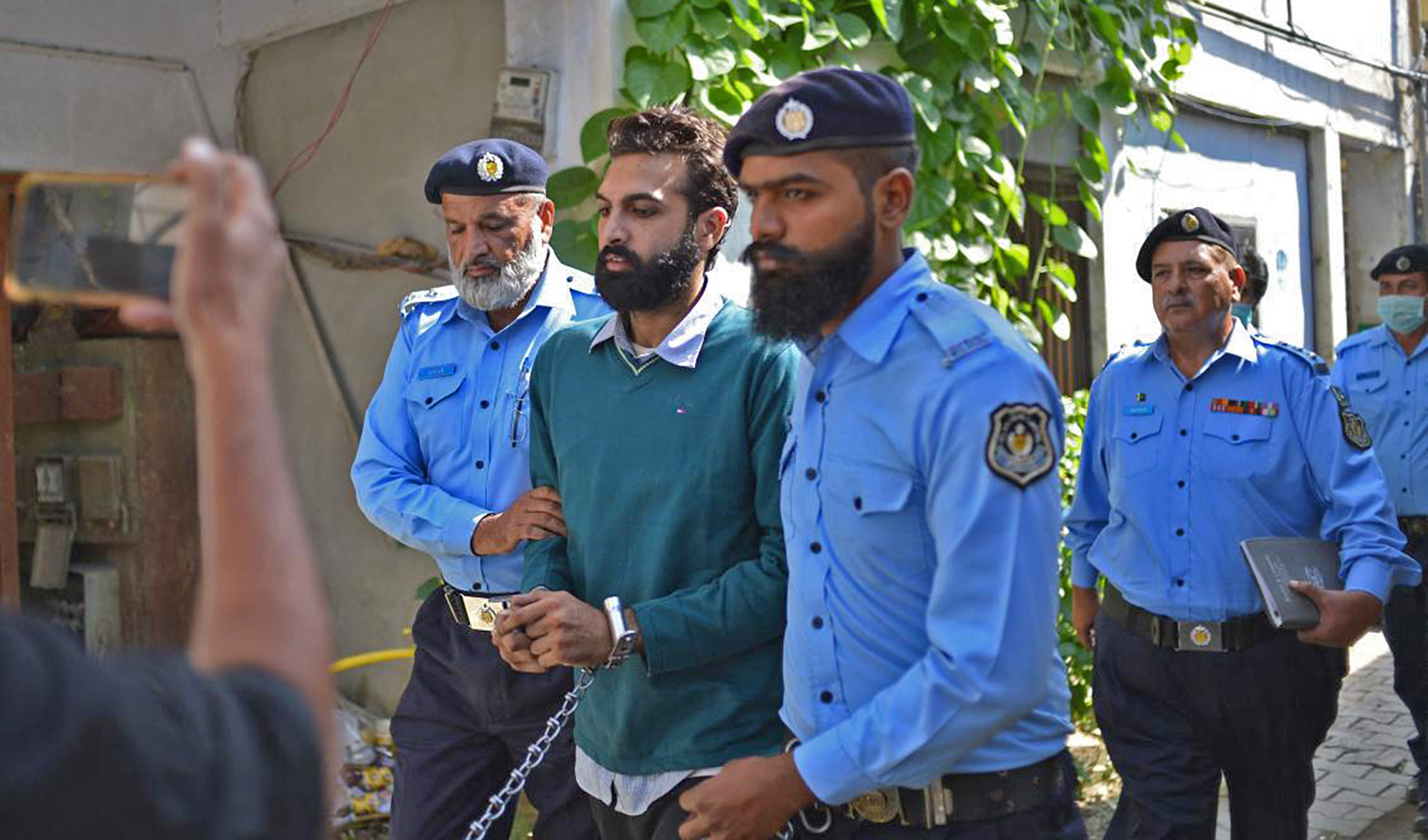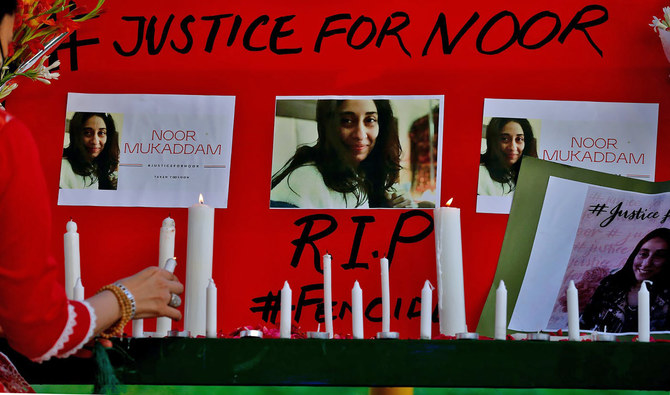ISLAMABAD: Noor Mukadam, a former Pakistani diplomat’s daughter who was found beheaded in Islamabad last July, did not contact the police or other individuals to caution them about a threat to her life, an investigation officer revealed on Wednesday.
Mukadam’s murder in Islamabad’s upscale F-7/4 neighborhood on July 20 sparked public outrage and grabbed media attention unlike any other recent crime against women. The key suspect Zahir Jaffer was arrested from the crime scene on the day of the murder and has since been in Rawalpindi’s Adiala Jail.
Others charged in the case include Jaffer’s parents, Zakir Jaffer and Asmat Adamjee, their three household staff, Iftikhar, Jan Muhammad and Jameel, and six employees of Therapy Works, a counseling center from where Jaffer had received certification to become a therapist and where he had been receiving treatment in the weeks leading up to the murder.
The case is now in the concluding stage in Islamabad’s district court, where additional sessions judge Atta Rabbani has been conducting the hearings. Eyewitnesses have recorded their statements in the case and defense attorneys are now cross-examining them.
During the cross-examination on Wednesday by advocate Sajjad Ahmed Bhatti, who is representing Jaffer’s household staff, the investigation officer Inspector Abdul Sattar said Mukadam’s mobile phone was working from July 18 to July 20 until 10 am. She had entered the Jaffer house on July 18, according to CCTV footage.
“Noor Mukadam had received and made phone calls and text messages during these two days,” he said while referring to the call data obtained from her phone. “She didn’t inform the police or 15 [police emergency service], or any of her loved one through a phone call or message between July 18 and 20 that her life was in danger.”

Policemen escort Zahir Jaffer, key suspect in Noor Mukadam murder case, after his court hearing in Islamabad, Pakistan, on October 20, 2021. (AFP/File)
The investigation officer said the three accused were not nominated in the initial police complaint, adding the plaintiff Shaukat Mukadam later filed an application against them on July 24 while mentioning their involvement in the murder.
Sattar said the police had not taken photogrammetry test of the three accused, adding that there was also no eyewitness in the case.
Earlier, Therapy Works counsel Akram Qureshi cross-examined the investigation officer. The counseling center employees had reached the crime scene before the police and one of them, Amjad, was attacked and injured by Jaffer while they were trying to physically overpower him.
The investigation officer said the DNA test of blood samples collected from the crime scene had confirmed Amjad’s presence, adding he had also admitted to the police that he was injured by Jaffer.
He said that Therapy Works employees informed the police after the arrest that they had reached the crime scene to provide medical assistance.
Sattar said that Amjad’s father had told the police he did not want to initiate any legal proceedings against the accused.
“We didn’t collect medico-legal certificate of Amjad from hospital, nor he become part of the investigation,” he said, adding that he was arrested on August 14 and his statement was recorded.
Judge Atta Rabbani kept taking notes and statements on his computer during the proceedings while making occasional interventions for clarification of any statement or remark of the investigation officer and defense lawyers.
Shortly after the hearing started, Islamabad police officials brought Jaffer, his father and other suspects in the crowded courtroom in handcuffs.
During the proceeding, two police officials made Jaffer stand at the back of the courtroom by holding him by his arms for at least two hours. Later, the police removed his handcuffs, allowed him to sit on a wooden desk and gave him a glass of water.
His mother Asmat Adamjee and another female relative remained seated in a chair in the courtroom. His father, Zakir Jaffer, who appeared composed and confident, also remained seated on a wooden desk during the proceeding and occasionally engaged in a conversation with a police official holding him by an iron chain.
Zakir Jaffer and his wife also seated side by side in chairs for a brief interaction in the courtroom.
The proceedings lasted for over three hours while a couple of armed police personnel stood outside the courtroom to avoid any untoward incident.
The court will now hand over a questionnaire to all suspects in the case to be submitted back before February 2.
The hearing will resume next Wednesday.















